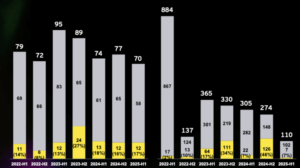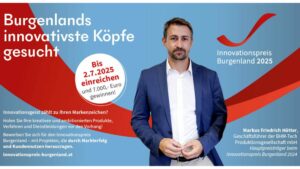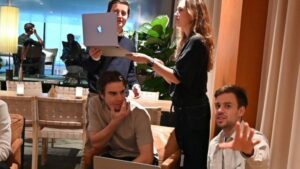How To Fail, Learn To Separate Business From Your Personality And Move On To The Next Big Thing
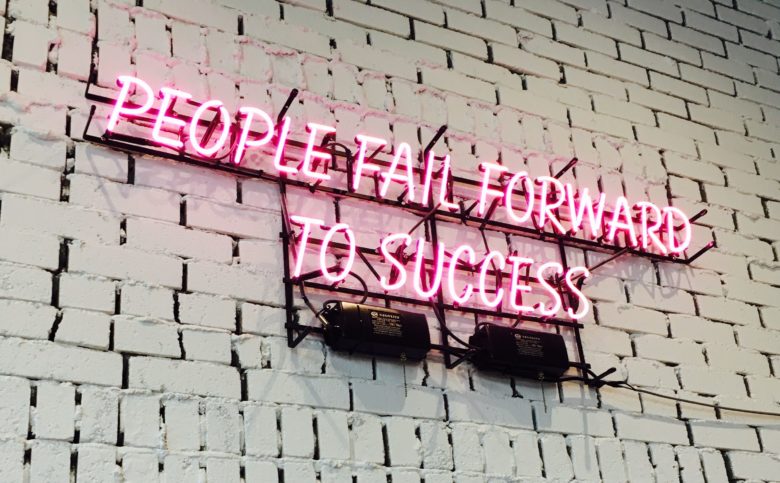
Leslie Spiro is a hard-working son of an immigrant in the UK who started his first venture in the early 90s and already had three startups on his track record by the end of the decade. In Bulgaria, he is rather known as the co-founder and CEO of Tick42, a British IT service and product company that works with financial brands like JP Morgan on a global level and was relocated to Sofia after the Brexit news came around.
Spiro seems to be a person who sees trends, opportunities, but also threats and potential failure point, pretty quickly. He is a serial entrepreneur who has tried and seen the tech business world from each possible perspective – as an employee, as a founder, as contractor consultant, as a manager, even from the inside of the VC industry. Before finding his two partners Stoyan Damov and Lubomir Konstantinov, and developing a growing IT business in Sofia, Spiro had to learn some lessons.
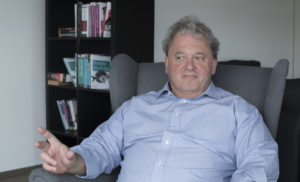
We sat down with him to talk about the attitude when doing tech business, the way you build confidence, motivate yourself after a failure, and manage to motivate a team that delivers.
First startup, first lessons
His first venture came sometime in the 80s, after he was reading about startups and got excited. So, he left his company and started something called Spiro Systems – a stock control software system for menswear shops. “We even received funding from the government. And I was working hard. Yet in two years we failed, and I was so surprised, rather devastated and shocked. You know it’s a personal thing,” recalls Spiro. This is when he first learned he needs to stop identifying with his business as a person, and that sometimes a bit of luck, complimentary to cleverness and hard work is needed.
#Failure is not a great experience
“I strongly identify myself with my business. I didn’t feel that my business had failed, I failed. And people were talking about learnings etc. Yes, I did learn a lot, but it was not how it felt. You never feel like it was a great experience.”
#Stop identifying yourself with your business
“I’d never advise a person to look for work-life balance in the early 20s while developing a startup. I’d just tell them personality and business are not the same things.”
After embracing the situation, Spiro, who is a developer but also hold an MBA from the London Business School, went to do contracting consulting. He ended up working with Reuters on an impossible project and then selling them a possible solution.
Accidentally entering the big pond
Reuters back then was rapidly growing and becoming successful, it was in the early days of Windows and the pre-digital transformation era. He was hired to develop a product Reuters had already sold to a large bank. “But what they wanted was not possible for several reasons and we had to tell them that. They saw it, however, and let us finish the project. The deal I made was that they will pass on the royalty to us if we develop it the way it would work” he says. And so, it went. Spiro started his own software product company SD&C and for the next seven years, his team developed all the Reuters Windows workstations. “It was quite a success,” he admits. Yet, at some point was not such an interesting challenge anymore.
#Embrace Randomness
“The thing I learned is that you must be clever, work a lot, but you also need to be lucky. It’s not only about learning lessons, reading books etc. You can’t avoid admitting luck and randomness are needed. It’s natural to the developers’ way of thinking, and I’m also a developer, to look for algorithms which would make sure everything will work. Well, I don’t think the business mindset is the same.” – Leslie Spiro
At some point, Spiro had another product idea and split the business with his partner to develop it. He developed and sold his product to banks up until the moment the dot-com bubble burst. So, by the end of the 90s, he already had enough experience and became an entrepreneur in residence in a VC company. “But it was at the middle of the dot com splash and no one was really feeling like investing,” he recalls laughingly.
When experts turn into showrunners
After spending the next years managing tech companies that sold products to banks and hedge funds, around 2010 Spiro met Stoyan Damov and Lubomir Konstantinov. The three decided to start something together and so Tick42 stepped on the Bulgarian market as a company called Pirinsoft. Spiro came because it was affordable to hire world-class developers but stayed because he saw a tech ecosystem developing.
With time, Tick42 has developed to a venture that improves business outcomes of financial companies by transforming complex desktops into simplified user experience. It has also developed its own product – an API that allows easy integration of the different apps (sometimes up to 600) banks are using in their processes and reduces operational costs. Today, Tick42 has a team of close to 100 people, works with names like JP Morgan and generates revenues of close to €5M (in 2017). Yet, before reaching this point, after they grew to six and then to 20 people, Spiro and his team had to figure out how they will grow and who will take which role.
#Managers, not processes
“There’s this point in your business development where you’ve grown enough. But the fact that you do the work yourself stops you. The thing that makes you successful, stops you from being successful. With my partners, we had the conversation of whether we need a manager or processes to align and put the business into order. It turned out that managers are more important ingredient. It’s hard to transit from an expert into a manager. Of course, at some point, you need to bring in external managers.”
As soon as the core team of founders transitioned from expert to management roles, it really started growing. Last October the company launched its first product, and now seems ready to take off. Spiro now has a plan to further grow his team with another around 30 people in Sofia, to be able to complete his vision. “My vision is to build a globally significant business. I’d like to build something that has a culture that helps people develop,” he says. Spiro wouldn’t have been the entrepreneur he is today if he hadn’t failed in his twenties, he admits.













